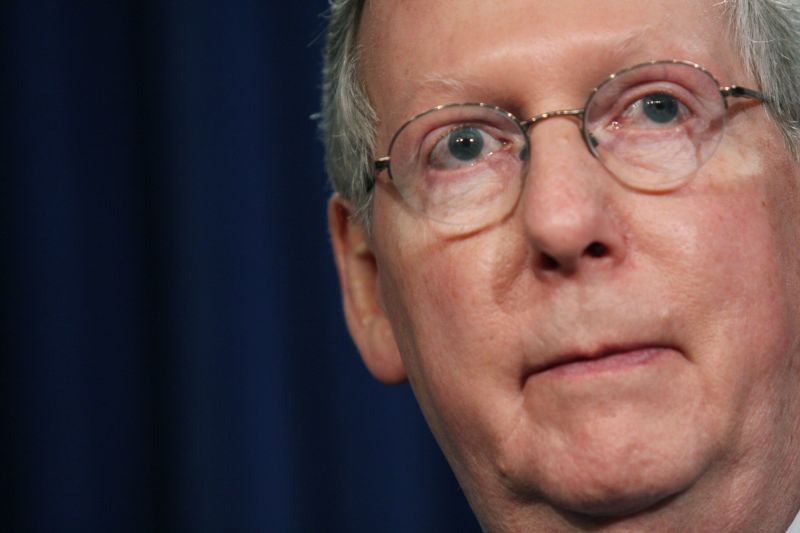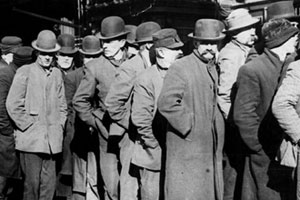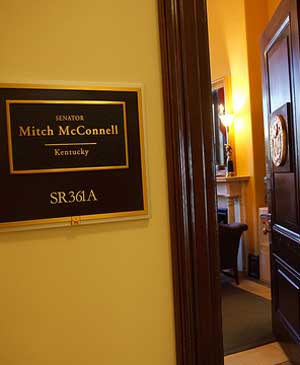Senate Minority Leader Mitch McConnell is not the guy to invite to a right-wing legal confab is you want to whip up the crowd with some red meat. His delivery is always low-key, whether he’s saying nice things about President Obama, as he did at the Federalist Society’s 2008 national lawyers convention, or whether he’s laying out the historic proportions of his party’s midterm victory, as he did this week at the conservative legal group’s latest DC conference. That’s not to say he can’t get in a few jabs in his own quiet way, and he won enthusiastic responses from the assembled lawyers, many of whom are Bush administration refugees and others whose aspirations for federal judgeships hinge on the 2012 election. McConnell told them that two years ago, when he last spoke at this gathering, James Carville was working on a book declaring that the Democrats would be the majority party for the next 40 years. “The mainstream media was asking whether the Republican Party would be around in 2010,” he said, deadpanning. “Now, some people are wondering whether the mainstream media will be around in 2012.”
But even after laying out some staggering statistics showing just how thoroughly his party trounced the Democrats in the midterms, McConnell wasn’t making any grand pronouncements about the return of GOP dominance. Instead, he said, “That doesn’t mean the Republicans should gloat. Republicans should realize who’s in charge and that’s the American people…Democrats have ignored the people for two years. Now that we’ve won back the voters trust, we will not be guilty of the same.” He said that he and incoming House Speaker John Boehner “want to make sure we don’t misread the mandate. We understand that this election was not about us. It was about them.”
At the Federalist Society conference in 2008, McConnell had expressed an interest in working with Obama on the “big things” they agreed on, like entitlement reform and energy policy. Today, the man who recently said the GOP’s main legislative goal is to make Obama a one-term president, also said he hoped to work with the administration on reducing energy dependence, reducing the trade deficit, and ensuring that the troops in Afghanistan and Iraq got all the support they needed. But he also insisted that the election showed that Obama needed to move towards the GOP on their agenda, and not the other way around. His first priority for the new Congress? To repeal and replace health care reform.
McConnell made it sound like health care reform wasn’t just about getting people insurance coverage and making sure they had access to care, but instead was about a much bigger principal. He insisted that if the courts uphold the legislation’s individual mandate—the requirement that everyone buy insurance or pay a penalty—then the country would be in for much bigger trouble, because “there will be no meaningful limit on the federal government.” And the federal government, according to McConnell is already way more powerful than it should be, and his party was set to rein in that power, mainly by freezing and cutting discretionary spending and lowering taxes. “We will work hard to make sure Democrats don’t raise taxes on anybody, and I mean anybody,” he said, getting wild applause from a room full of corporate lawyers who are likely well above the cut off for what Obama considers “middle class.” All of those things, McConnell said, would be part of the GOP’s “humble but determined effort” to do what the voters demanded in this last election. The minority leader might not have been gloating, but the conservative lawyers in the room to hear him speak certainly were.














